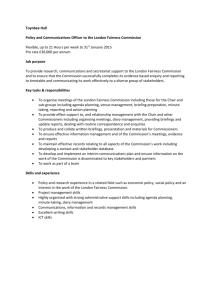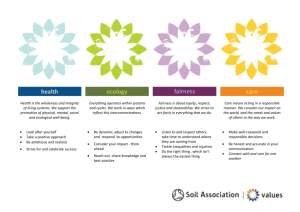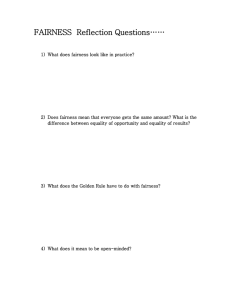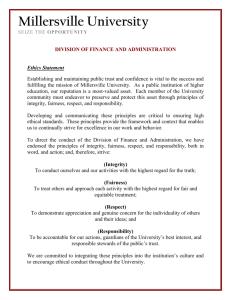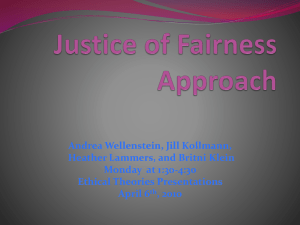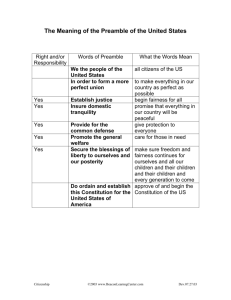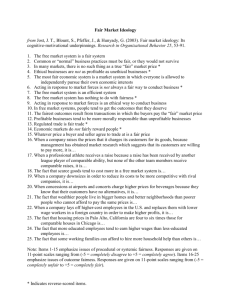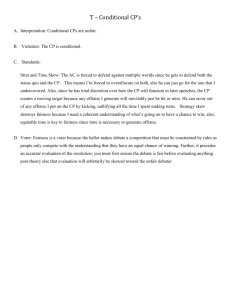What do we mean by fairness in cities?
advertisement
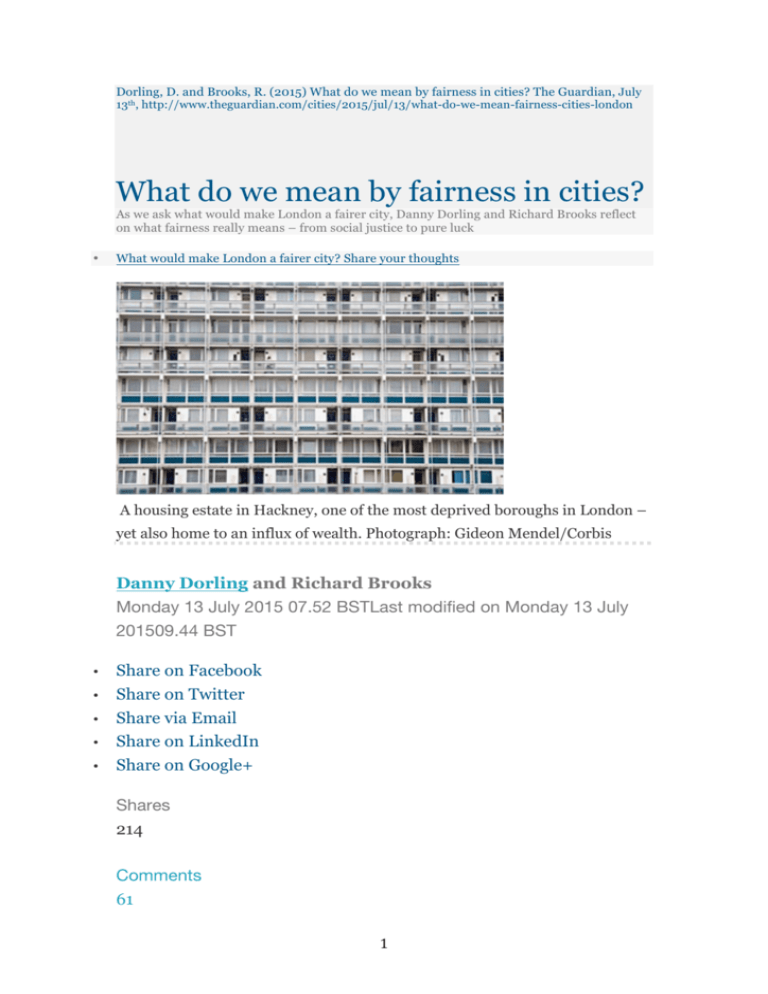
Dorling, D. and Brooks, R. (2015) What do we mean by fairness in cities? The Guardian, July 13th, http://www.theguardian.com/cities/2015/jul/13/what-do-we-mean-fairness-cities-london What do we mean by fairness in cities? As we ask what would make London a fairer city, Danny Dorling and Richard Brooks reflect on what fairness really means – from social justice to pure luck • What would make London a fairer city? Share your thoughts A housing estate in Hackney, one of the most deprived boroughs in London – yet also home to an influx of wealth. Photograph: Gideon Mendel/Corbis Danny Dorling and Richard Brooks Monday 13 July 2015 07.52 BSTLast modified on Monday 13 July 201509.44 BST • • • • • Share on Facebook Share on Twitter Share via Email Share on LinkedIn Share on Google+ Shares 214 Comments 61 1 London is now home to more rich people than any other city in the world and benefits from tremendous economic, social and cultural vibrancy. But the city is also home to serious poverty, deprivation and social exclusion, and faces challenges in housing, transport and opportunities for young people. What is fairness? What would count as a fair city? What would it take to make London the fairest city in the world? The principle of fairness is not easy to apply. Radically different religions and political systems incorporate an idea of fairness. Politicians across both left and right all claim fairness for their approach. So how can fairness be understood? The classic distinction is between equality of outcomes, resulting in a uniform distribution of goods and equality of opportunity (setting up a fair race). Fairness as equality proceeds from an objection to gross disparities in income, wealth, power and freedoms. A billionaire simply cannot personally enjoy his wealth so much as a thousand millionaires, and the same sum of money could build new homes for more than 10,000 families. But there is also public support for the idea that if people “work hard and save,” then they are fairly entitled to their resulting wealth. So the opposite of fairness is not inequality. What is more controversial is the fact that the opportunities of affluent people – and the opportunities of their children, family and friends – are then enhanced by that wealth. Fairness is also related to ideas of justice. The most basic relationship between fairness and justice is the principle of fair treatment before the law and as subjects of state authority. The high rate of stop and search operations carried out on young black people is widely seen as unfair, as is the low level of criminal sanctions imposed on those apparently abusing positions of great economic power. How many 2 bankers have been imprisoned for breaking the law? How many black people have died in custody in the UK? How many bankers have been imprisoned for breaking the law? How many black people have died in custody in the UK? FacebookTwitterPinterest Justice? ... Police stop and search young black men at Notting Hill Carnival. Photograph: Gideon Mendel/Corbis The concept of autonomy can also guide our use of fairness. Social justice is a function of the extent to which individual human beings can live a full and rewarding life. It is unfair when someone is prevented from flourishing. Poverty obviously holds people back, but the argument can also be extended to inequality. When public healthcare is not adequately funded, despite massive private affluence, it is unfair that so many people’s autonomy – their freedom from illness and pain, their ability to lead an independent life – is not being respected. It is worth also thinking about the relationship between luck and fairness. Luck has been used to ensure a form of fairness for thousands of years – for example, drawing lots for political roles in ancient Greece. In western societies, “a fair chance” is almost synonymous with an arbitrary dice roll or a coin toss. The UK’s public 3 perception of lottery winners illuminates this relationship: that their winnings are fair even if not really deserved. There is a lot of luck in the world, and some of it leads to very unequal outcomes. London is a unique city – today and historically – and we therefore expect Londoners to view fairness as a unique combination of equalities, rights, justice and freedoms. Danny Dorling and Richard Brooks are commissioners for the London Fairness Commission, an independent Commission established to organise conversations around fairness in London. The commission is chaired by Lord Victor Adebowale. 4
